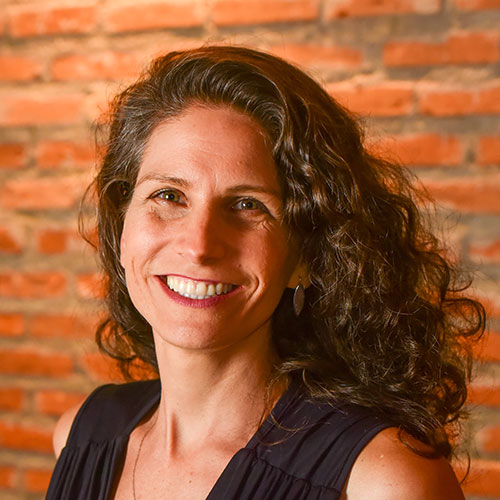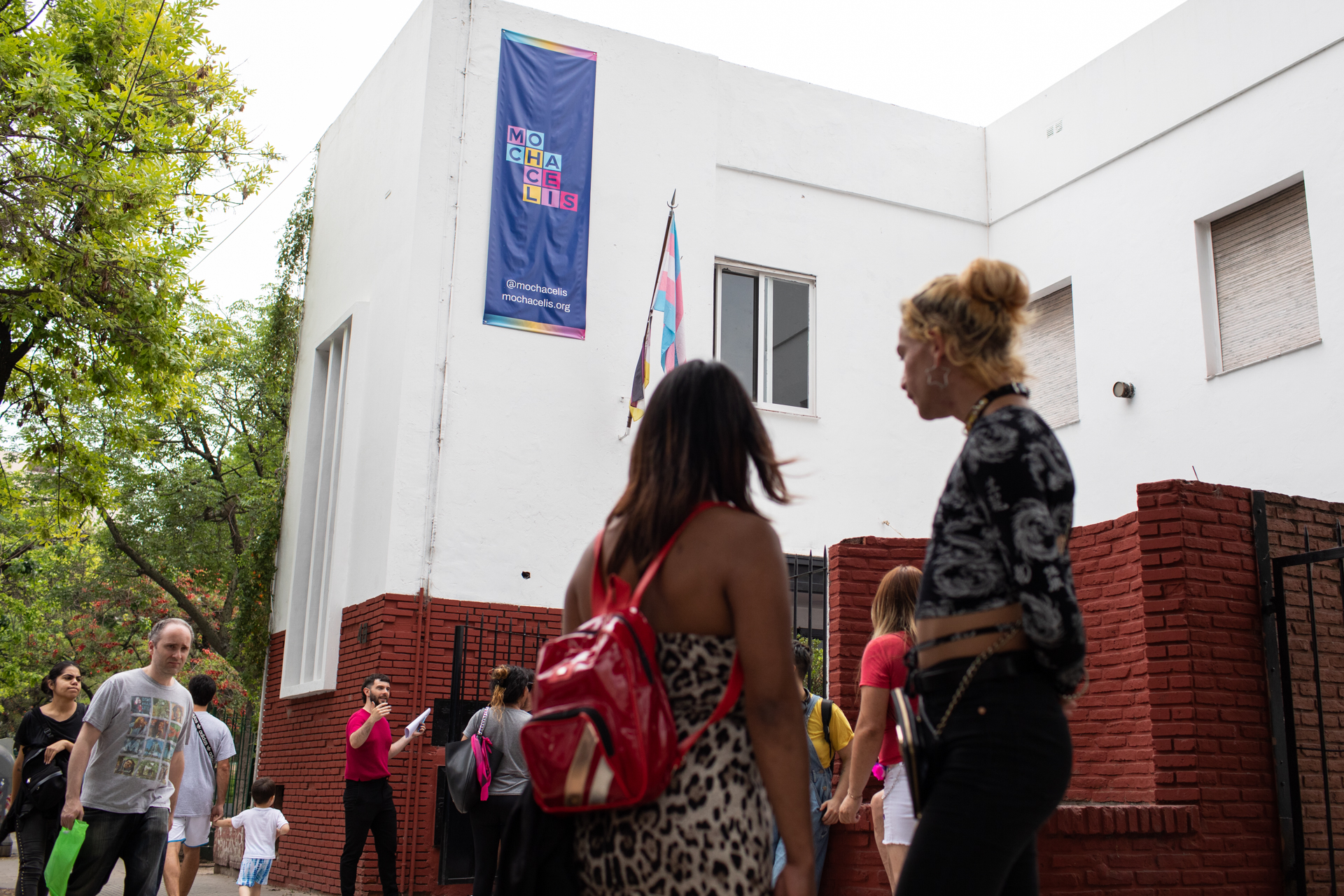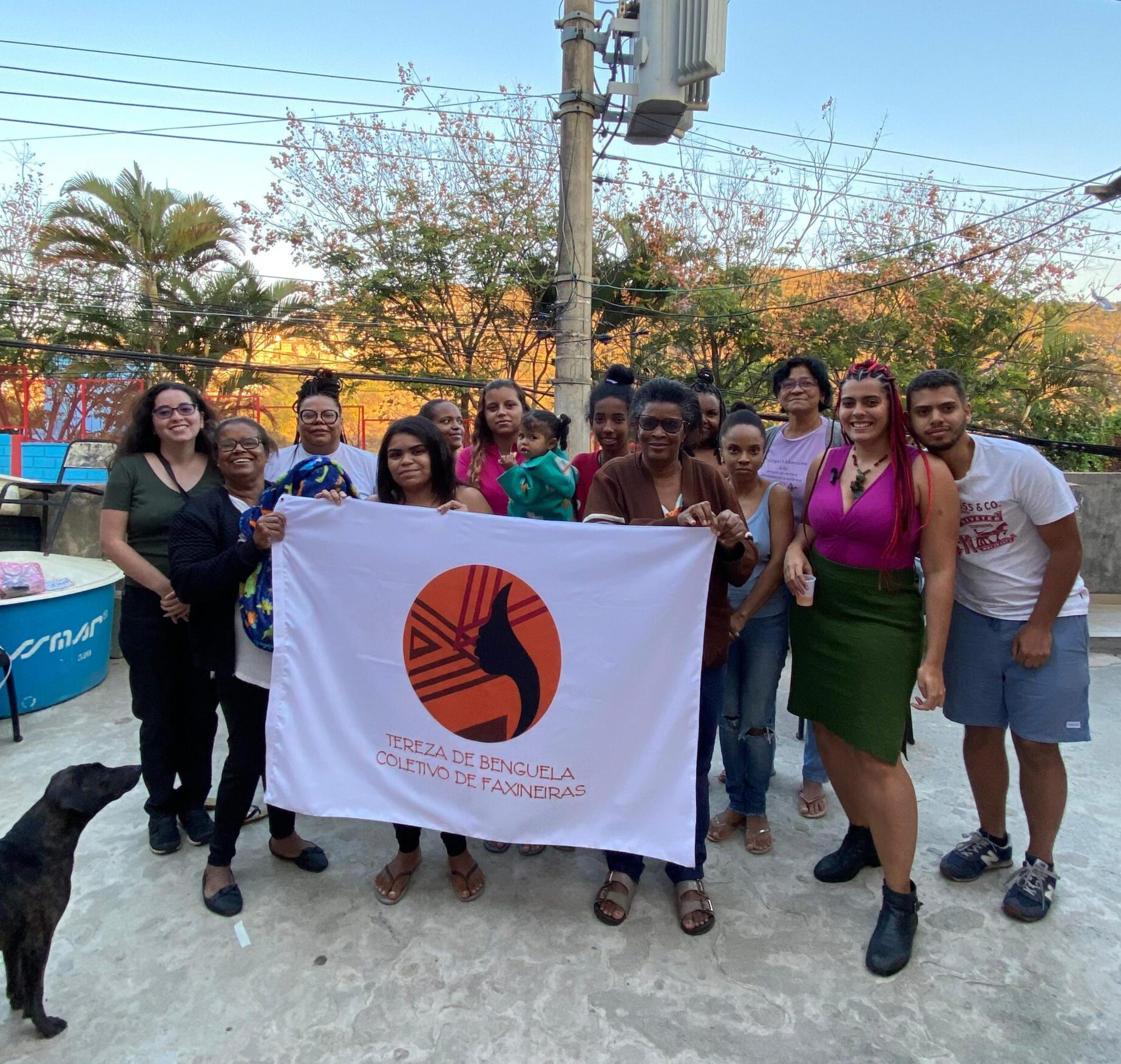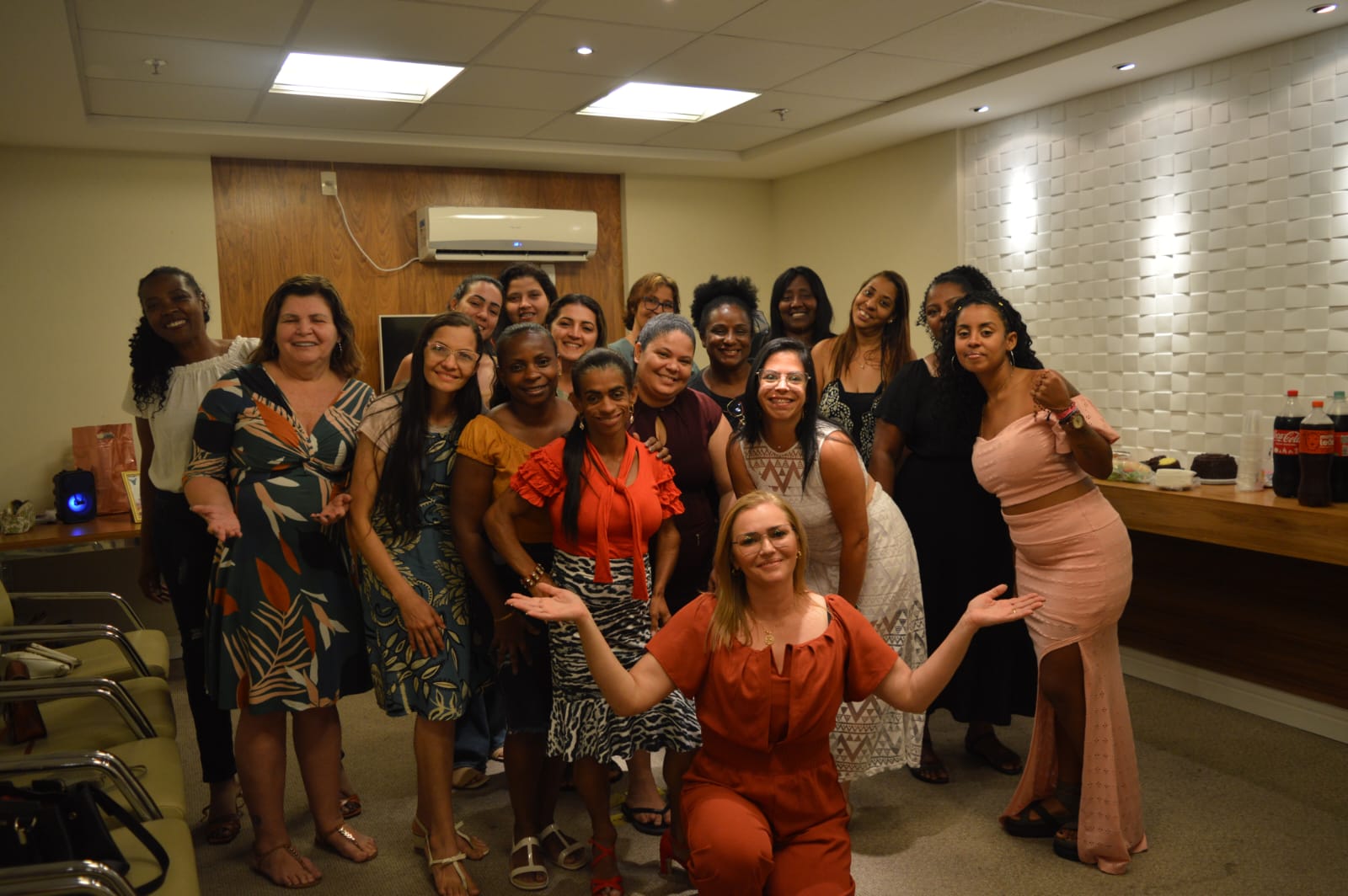Banho Solidário Sampa offers moments of comfort and dignity with showers to the homeless population
NGO performs up to 50 baths in people, in addition to bathing pets and offering beauty services, psychological care and referrals to necessary public services
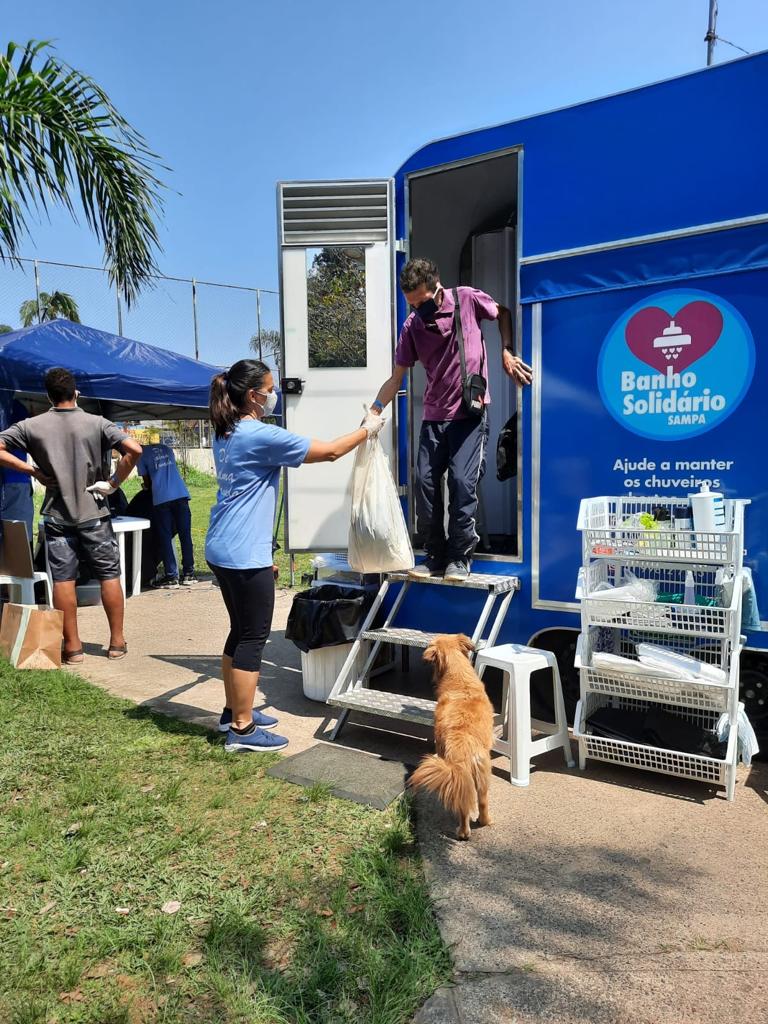
In motion since 2020, a trailer with the capacity to store 600 liters of water brings self-esteem, well-being and respect to people and their animal companions living on the streets in São Paulo. This is the work carried out by the NGO Banho Solidário Sampa, founded by nine friends who got together to carry out itinerant actions offering hot baths, haircuts and clean clothes to the city’s homeless.
The trailer started being designed in 2019 and was ready in March 2020, days before the first lockdown that was instituted to contain the contamination of COVID-19. Friends pondered the risks once the pandemic started, but ultimately decided to keep moving forward: “What was recommended at the beginning of the pandemic was hygiene care and staying at home. But what about those who didn’t have a home? That’s why we decided to keep going and haven’t stopped since”, says Paulo César Fernandes, president of the NGO.
Today, the trailer accounts for more than one hundred actions throughout the city of São Paulo. The baths take place on Sundays, two to three times a month. Everything is done voluntarily, with work teams that add up to 70 people per action. The project is maintained through donations from individuals and support from companies such as Lorenzetti, Blindex, Dr. Shape and Pets, among others.
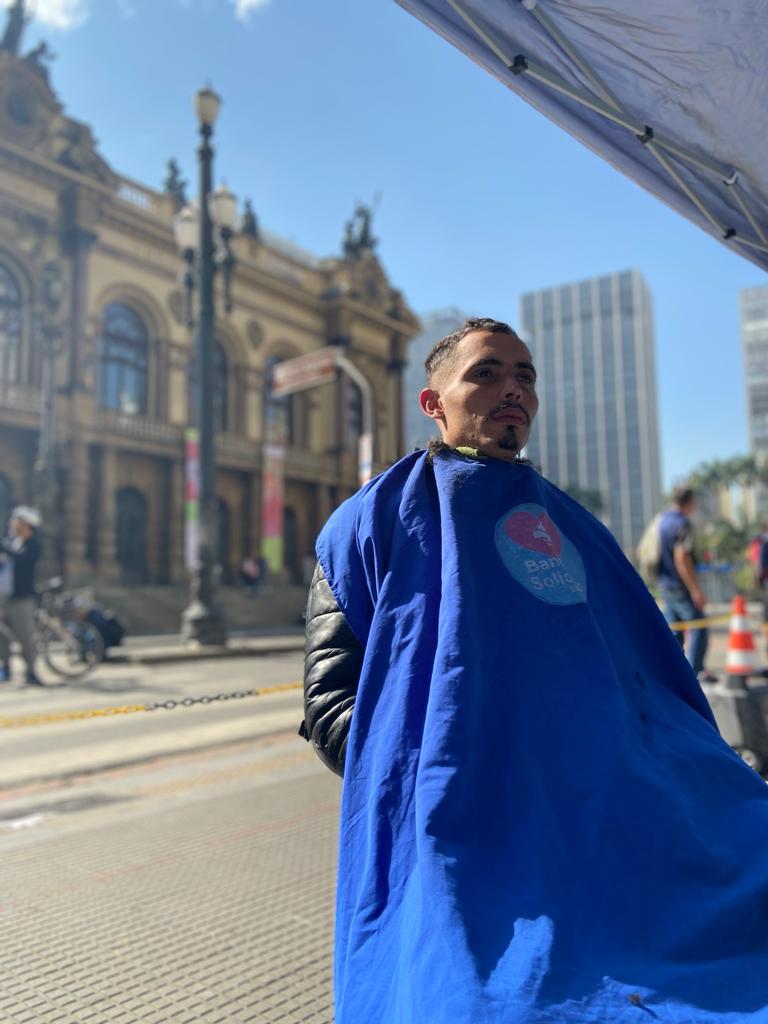
The street population
Many people have a distorted view of the street population. Negative associations make this population suffer from all kinds of prejudice: “people are afraid, they think they’re going to be robbed, that there’s going to be some kind of violence. It is a very distorted look”, warns Paulo.
It is also common to hear that those who are on the street do not like to work. “But it’s hard to find a job even for someone who has a resume and a physical address, what about someone who’s on the street?”, he asks. Paulo César notes, however, that there is a small percentage of people who make this choice:
“It’s hard for most of us to understand that, because we’re used to a certain way of life: working, having a home, creating bonds. But there are people with completely opposite thoughts, who want the freedom of being on the streets and not submitting to rules. These people live on the street because they made that choice,” he explains.
According to a report by G1, for every 10 homeless people, seven are black. In 2020, when Banho Solidário was launched, there were around 38,000 homeless people in São Paulo. Currently, that number is close to 55,000. The city registers the highest number in the entire country, which since 2019 has increased by 38%.
Banho Solidário
The idea of taking dignified baths to the homeless population came about after Paulo, his wife Cláudia and seven other friends realized that this factor was not considered in assistance actions for the homeless population. “All of us have worked as volunteers and we were used to doing things related to providing food and blankets in the winter”, says Paulo César.
These social works are well established on the streets of São Paulo, he explains. The bath, on the other hand, came as a question: how do you clean your body? They observed that people even manage to clean themselves, since with two bottles of water it is possible to wash the body, but it is not a decent bath.
“That was the difference we wanted to offer,” he recalls. To achieve this, they set up an apparatus where they offer a bath in an appropriate, clean, comfortable place, with shampoo, soap and towels, in addition to a haircut and clean clothes. The NGO also offers manicures, a podiatrist, food, psychological listening, a bookstore and a toy library.
More recently, they also started to offer pet baths to animals that accompany the homeless population. “It’s all done with great care: we look people in the eye, ask their name, talk”, explains Paulo.
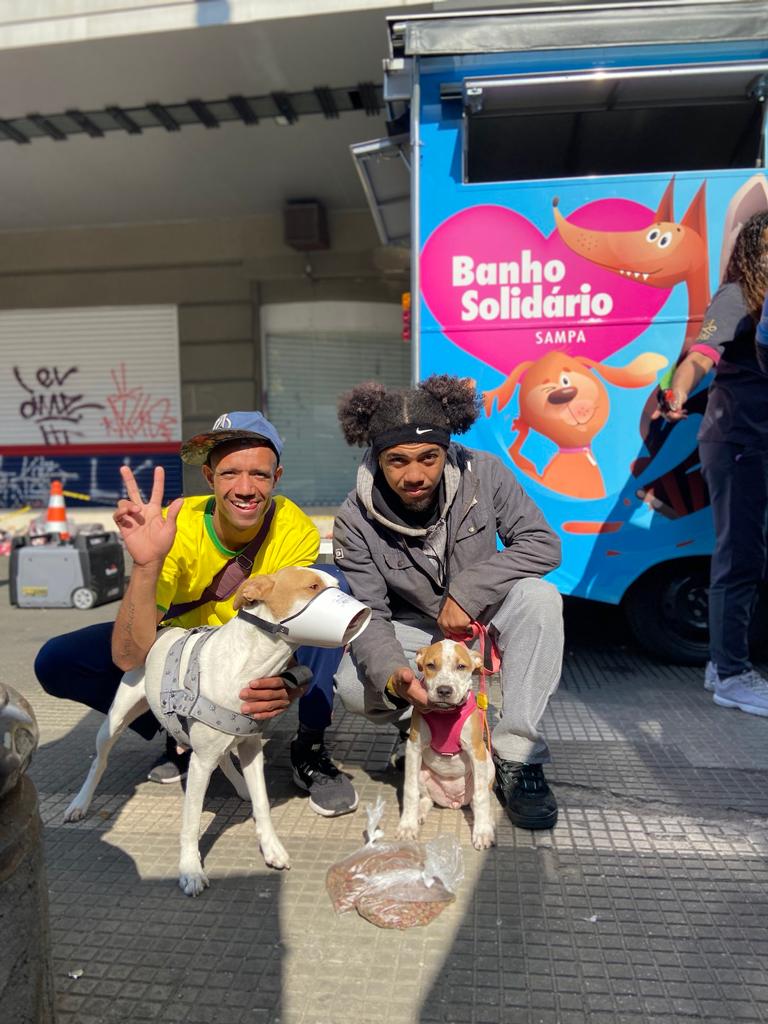
Clothing store and power of choice
The supply of clothes and shoes is done in a special way: everything that is donated goes through a sorting process that excludes defective, faded and punctured items. The clothes are then hung on racks, the shoes displayed on shelves and the accessories packed one by one. The objective is to offer the power to choose what one wants to have and use after a shower.
“We couldn’t make a pure and simple donation like it happens today. Of course, giving away a coat, hat and socks on a cold night helps. But we wanted to offer the power of choice, something rewarding”, says Paulo César. It is no coincidence that each action of the Banho Solidário involves dozens of volunteers, offering, in addition to dignity and comfort, food for up to 500 people.
The actions are complementary and require work, dedication and commitment. ”It’s really challenging. By luck, or by fate, several people arrive with great goodwill and competence, helping us in all spheres of the bath”, he says.
Resocialization
For Paulo César, the profile of the homeless population has changed in the last few years. He says that, when he started volunteer work, almost 30 years ago, there was a predominance of men on the streets. “Today there are many women, children and entire families who have been evicted, lost their jobs and are homeless,” he says.
A set of factors leads people to live on the streets. The pandemic, in particular, brought several negative economic aspects, many companies went bankrupt and people lost their jobs. Therefore, it is necessary to offer training and income for these people to have a home again. In other words, offer jobs.
“From there, there is the possibility of leaving the street. I believe it would be easier if this offer came from the government, creating specific vacancies for this more vulnerable population. And also offer treatments for those who are addicted to drugs and alcohol. We realize that this also disrupts their lives a lot ”, he points out.
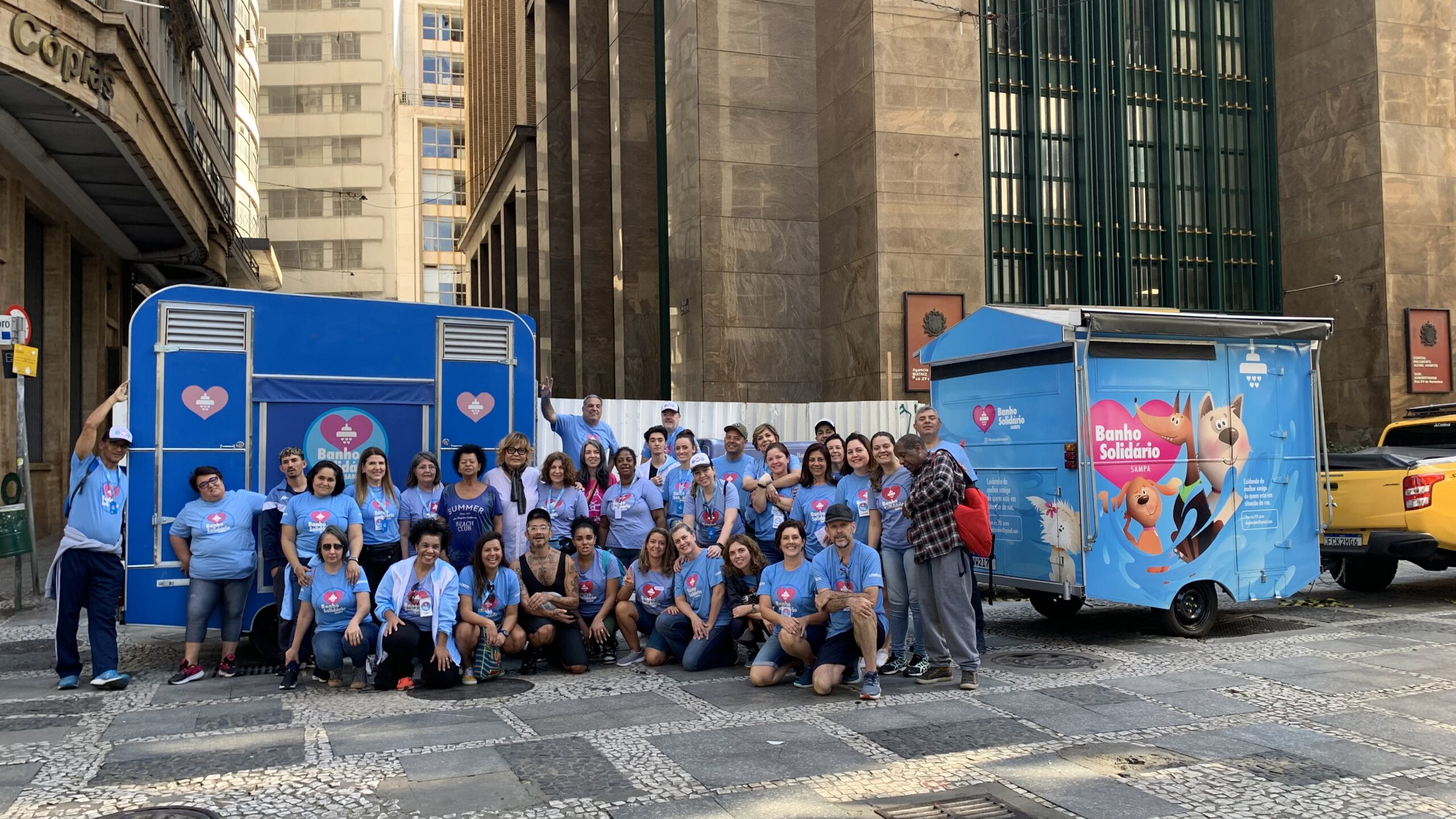
The main cause that leads someone to continue living on the street, however, is due to some family maladjustment: “Sometimes the person has a different sexual orientation, is not accepted by the family and ends up on the street. A lot of people suffer due to disappointments too, like people who lost a child or who went through problems in their relationship”, says Paulo.
In this sense, Banho Solidário has the Resocialization Board, which bridges the gap between the homeless and the family of origin, rehabilitation clinics and public equipment from the state and city hall. In addition, the NGO provides glasses, some dental treatment and covers travel costs back home, whether it be a bus or plane ticket.
“We have been on the street for three years, serving different regions of the city, from the center to the outskirts. We never had any incidents in the actions. And we’re getting famous! When we set up the bath square, everyone is euphoric… They know they are going to have a different Sunday, that they are going to be looked at and heard”, concludes Paulo.
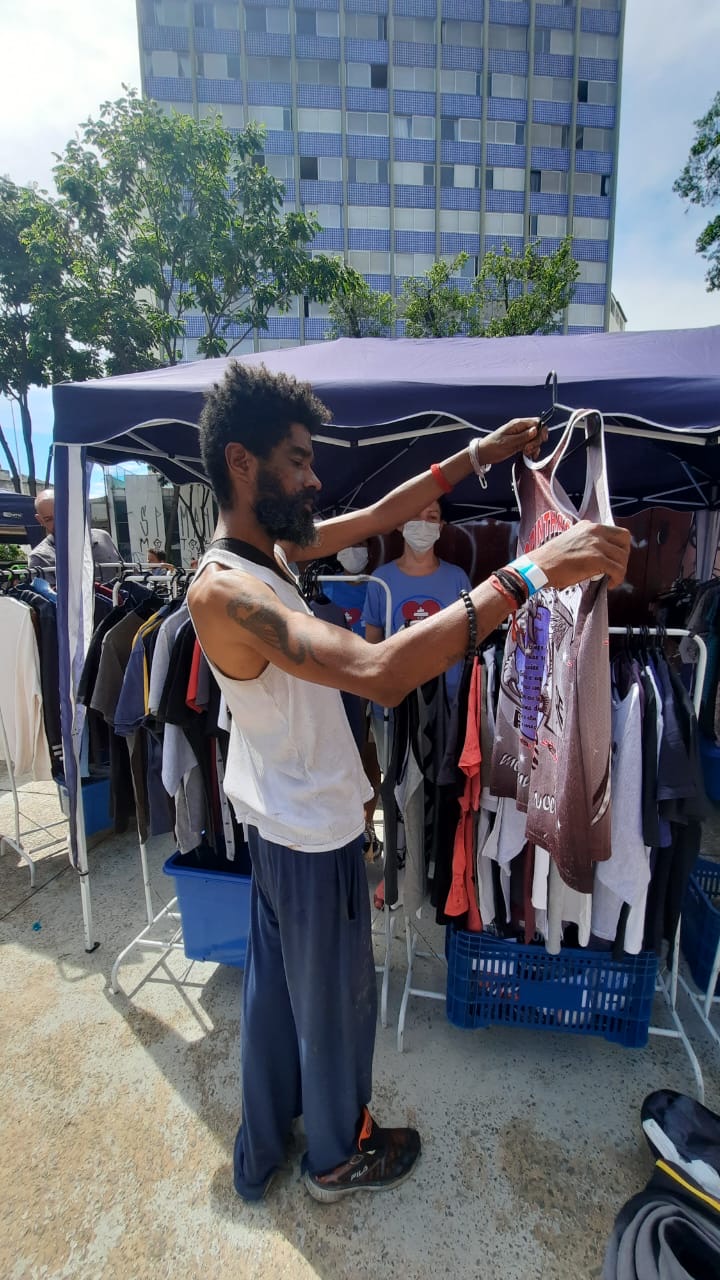
Want to support this cause?
Make a donation through the website or volunteer in the actions!
For more information, follow the social networks of the Associação Solidário Sampa on Instagram, Facebook and Linkedin.
